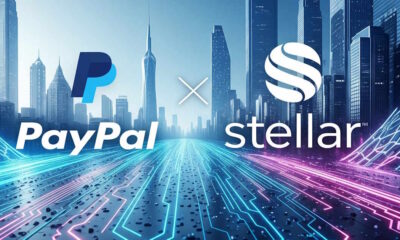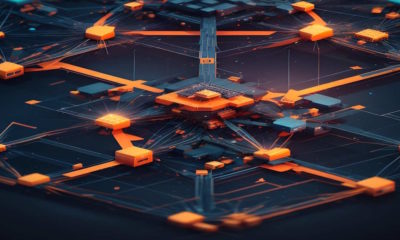Blockchain
How Can Blockchain Aid Developing Countries Digital Transformation
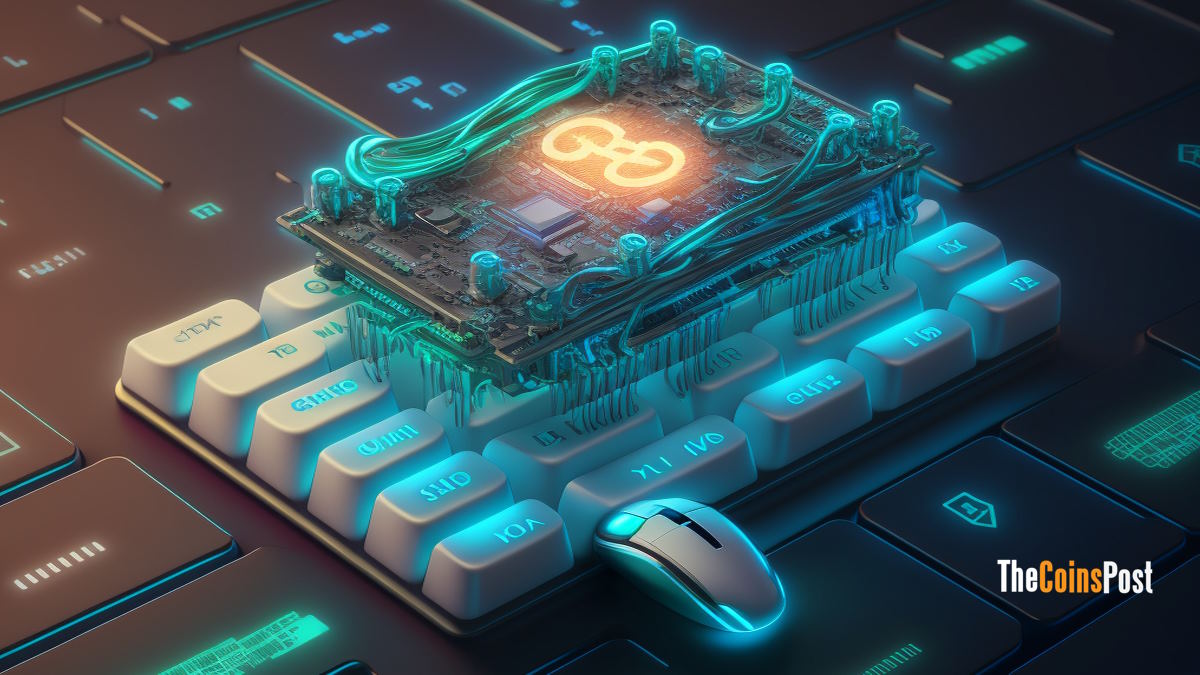
Blockchain technology has the potential to greatly aid the digital transformation of developing countries. This innovative technology can provide secure and transparent digital systems that can improve financial inclusion, identity management, supply chain management, land and property rights, digital governance, digital health records, and digital education.
Contents
Financial inclusion
One of the key ways in which blockchain can aid developing countries is through financial inclusion. By providing access to financial services such as remittances, microfinance, and digital payments, blockchain can help to bridge the gap between the formal and informal economies. This can enable more individuals and businesses to participate in the global economy, thereby promoting economic growth and reducing poverty.
Identity management
Identity management is a crucial area where blockchain technology can make a significant impact in developing countries. By creating secure and verifiable digital identities for individuals and businesses, blockchain can facilitate access to government services and financial services. This can help to combat corruption and increase access to credit, thereby promoting economic growth and reducing poverty. Blockchain-based digital identities can also help to protect individuals from identity theft and fraud, and can provide a secure and transparent way for businesses to verify the identity of their customers and partners.
Transparency and traceability
Blockchain technology has the potential to greatly improve transparency and traceability in supply chains, which can lead to greater efficiency and reduced fraud. By providing a secure, tamper-proof and transparent record of transactions, blockchain can enable businesses to track products and goods throughout the supply chain process. This can help to identify inefficiencies, reduce costs, and improve the quality of goods and services. This can also make it easier for businesses to access global markets, promoting economic growth and reducing poverty by increasing trade and commerce opportunities. Blockchain-based supply chain management can also increase consumer trust by providing a transparent and tamper-proof record of the origins of goods and products, and can help to combat counterfeit goods and sustainably source products.
Tamper-Proof record of ownership
Blockchain technology has the potential to greatly aid in securing land and property rights by creating a tamper-proof and transparent record of ownership. In developing countries, where land and property rights are often uncertain or subject to corruption, blockchain can create an immutable and accessible record of ownership. This can help to combat corruption and increase access to credit by providing a secure and transparent way to verify property ownership. This can also help to promote economic growth and reduce poverty by making it easier for individuals and businesses to access credit and invest in property. By providing an accurate and secure record of land and property rights, blockchain can also help to resolve disputes over ownership and can foster a more efficient land market.
Digital governance
Digital governance is another area where blockchain can make a difference. By enabling secure and transparent digital voting and e-government services, blockchain can help to increase citizen engagement and trust in government. This can lead to more efficient government services and better accountability, promoting economic growth and reducing poverty.
Digital health records and digital education
Digital health records and digital education are other areas where blockchain can be of great use. By providing secure and verifiable digital records, blockchain can enable better and more efficient health care services, and by providing secure and verifiable digital credentials and certificates, blockchain can make it easier for individuals to prove their qualifications and access education and employment opportunities.
Conclusion
Blockchain technology has the potential to greatly aid the digital transformation of developing countries. By providing secure and transparent digital systems, blockchain can help to promote financial inclusion, identity management, supply chain management, land and property rights, digital governance, digital health records, and digital education. This can lead to economic growth and poverty reduction, improving the lives of individuals and businesses in these countries.
Blockchain
PayPal USD Plans to Use Stellar for New Use Cases
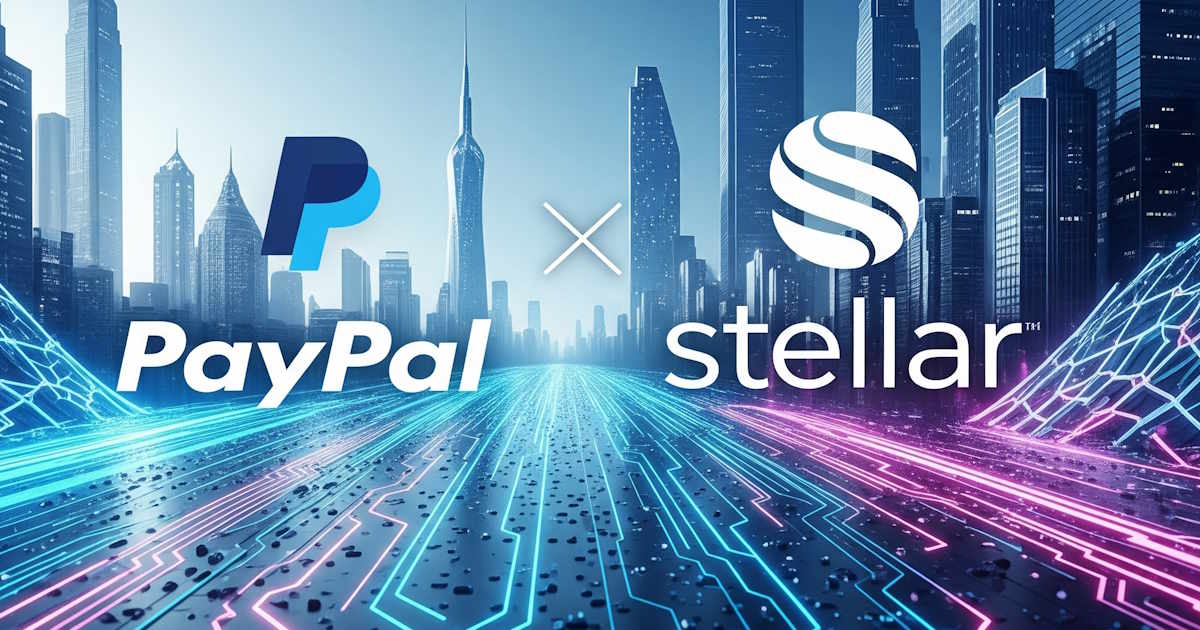
PayPal just announced big plans for its stablecoin. The company wants to bring PayPal USD (PYUSD) to the Stellar blockchain network. This move could change how people use digital payments around the world.
The plan needs approval from New York regulators first. But if it goes through, PYUSD users will get access to faster and cheaper transactions. They’ll also have more ways to move money across borders.
Contents
What This Means for Users
Right now, PYUSD works on Ethereum and Solana networks. Adding Stellar gives users another option. And this option comes with some clear benefits.
Stellar is built for payments. The network handles transactions quickly and keeps costs low. For people sending money to family in other countries, this matters a lot. High fees can eat up a big chunk of what they’re trying to send.
May Zabaneh from PayPal’s blockchain team explains why this partnership makes sense. She says cross-border payments are where digital currencies can provide real value. Working with Stellar helps advance this technology for everyone.
The Stellar network already connects to payment systems in over 170 countries. This means PYUSD users could potentially send money almost anywhere in the world. They won’t need to worry about finding the right exchange or paying huge conversion fees.
How Stellar Makes a Difference
Stellar was designed with payments in mind. Other blockchains might focus on complex smart contracts or storing digital art. Stellar keeps things simple and focuses on moving money efficiently.
The network processes transactions in just a few seconds. Compare that to traditional bank transfers that can take days to clear. Users also pay very low fees, often just fractions of a penny per transaction.
Denelle Dixon leads the Stellar Development Foundation. She says bringing PYUSD to their network transforms stablecoins into practical tools. Instead of just trading tokens, people can use them for everyday financial needs.
This practical approach could help both individuals and businesses. Small companies often struggle with cash flow issues. They might wait weeks to get paid by customers but need to pay suppliers right away. PYUSD on Stellar could help bridge these timing gaps.
New Opportunities for Businesses
The partnership opens doors for something called Payment Financing or “PayFi.” This is a new way for businesses to get working capital quickly.
Here’s how it works: A small business has invoices that won’t be paid for 30 days. But they need money now to buy inventory or pay employees. With PayFi, they can get that money immediately in PYUSD. When their customer pays the invoice later, the advance gets repaid.
This system works because Stellar settles transactions instantly. Traditional financing often involves paperwork and waiting periods. PayFi happens in real-time on the blockchain.
Liquidity providers can fund these opportunities and earn returns from real economic activity. It’s not speculation or trading volatile tokens. It’s helping real businesses solve actual problems.
For small and medium businesses, this could be game-changing. They often can’t access traditional business loans easily. Banks want lots of paperwork and collateral. PayFi systems could be more accessible and faster.
Cross-Border Payments Get Easier
Sending money internationally is still expensive and slow in many cases. Traditional remittance services charge high fees. Bank wire transfers take time and cost money.
PYUSD on Stellar could fix these problems. The stablecoin maintains its dollar value, so people don’t worry about price swings. The Stellar network moves it quickly and cheaply.
Workers sending money home to families could save significant amounts on fees. Businesses importing goods could pay suppliers faster and more efficiently. Even tourists could potentially use PYUSD for payments while traveling.
The network’s extensive infrastructure helps make this possible. Stellar connects to local payment systems and cash networks in many countries. Users can convert between PYUSD and local currencies more easily.
The Technology Behind It
Stellar runs differently than some other blockchains. It doesn’t use energy-intensive mining like Bitcoin. Instead, it uses a consensus system that’s much more efficient.
This efficiency translates to lower costs and faster processing. The network can handle thousands of transactions per second. As more people use it, the system is designed to scale up without major slowdowns.
Smart contracts on Stellar are simpler than on some other networks. They focus on practical financial applications rather than complex programs. This approach helps keep things fast and reliable.
The blockchain has been running for years and has processed billions of operations. It’s proven itself as a stable platform for financial applications.
Regulatory Considerations
PayPal needs approval from the New York State Department of Financial Services before launching PYUSD on Stellar. As of May 2025, this approval hasn’t been granted yet.
New York has strict rules about digital currencies and stablecoins. Companies need proper licenses and must follow specific requirements. PayPal already has the necessary licenses, but expanding to new networks requires additional approval.
This regulatory step is important for user protection. It ensures that companies follow proper procedures and maintain adequate reserves backing their stablecoins.
PYUSD reserves are fully backed by U.S. dollar deposits and Treasury securities. Paxos Trust Company issues the tokens and maintains these reserves. This backing helps maintain the stablecoin’s stability.
Market Impact and Competition
PayPal’s move puts pressure on other stablecoin issuers. USDC and Tether dominate the market now, but they face new competition. PYUSD’s integration with Stellar could attract users who want better payment features.
The partnership also validates Stellar’s approach to blockchain technology. While other networks chase complex applications, Stellar focuses on practical financial uses. This partnership with a major company like PayPal shows that approach can work.
For the broader crypto industry, this represents a shift toward real utility. Instead of speculative trading, stablecoins are becoming tools for actual financial services.
Challenges and Considerations
Not everything will be smooth sailing. Regulatory approval could take time or face obstacles. Different countries have different rules about digital currencies.
Technical integration also requires careful planning. PayPal needs to ensure the user experience remains simple despite the underlying complexity.
Competition from other payment networks and stablecoins will be fierce. PayPal will need to clearly demonstrate the benefits of using PYUSD on Stellar versus other options.
User education might be necessary too. Many people still don’t understand how stablecoins work or why they might want to use them instead of regular payment methods.
Looking Ahead
If regulators approve the plan, PYUSD on Stellar could launch within months. The timing depends on regulatory processes and technical preparation.
Success could lead to further expansion. PayPal might explore other blockchain networks or additional financial services built on stablecoins.
The partnership could also inspire other companies to explore similar integrations. Traditional financial services companies are watching how PayPal’s blockchain experiments perform.
For users, the key question is whether PYUSD on Stellar will actually solve real problems better than existing options. Lower fees and faster transfers sound good, but adoption depends on practical benefits.
The Bigger Picture
This announcement reflects broader trends in digital finance. Stablecoins are moving from crypto trading tools to practical payment solutions. Major companies are building real applications instead of just experimenting.
PayPal has been one of the more cautious big companies entering crypto. They’ve moved slowly and focused on regulatory compliance. This measured approach might help them succeed where others have struggled.
The focus on cross-border payments makes sense too. This is an area where traditional financial systems still have major problems. High costs and slow processing create opportunities for blockchain-based solutions.
Blockchain
Fireblocks buys Australian blockchain start-up BlockFold

Fireblocks, the crypto company backed by Sequoia Capital and Coatue Management, has acquired BlockFold, a Melbourne-based start-up that helps financial institutions build blockchain-based systems.
As per Bloomberg , Fireblocks paid about $US10 million ($15.6 million) for BlockFold. While Fireblocks already works with large financial institutions, including Bank of New York Mellon, BNP Paribas and the Tel Aviv Stock Exchange, it has predominantly offered them services around custody technology.
New York-based Fireblocks is one of crypto’s most well-funded start-ups, having raised some $US1.2 billion so far. The company, which employs around 650 people in the US and Israel, was valued at $US8 billion in its latest financing round in January 2022.
The deal comes as large Wall Street firms ramp up efforts to issue and trade traditional financial assets like bonds and private-equity investments over blockchain networks, seeking to simplify processes and cut costs.
Founded in 2021, BlockFold specialises in tokenisation and smart-contract development for clients such as large financial institutions. Fireblocks and BlockFold have already worked together on projects including National Australia Bank’s recent cross-border stablecoin transfer.
Blockchain
Brazil Enhances National Identity Card Security with Blockchain Technology
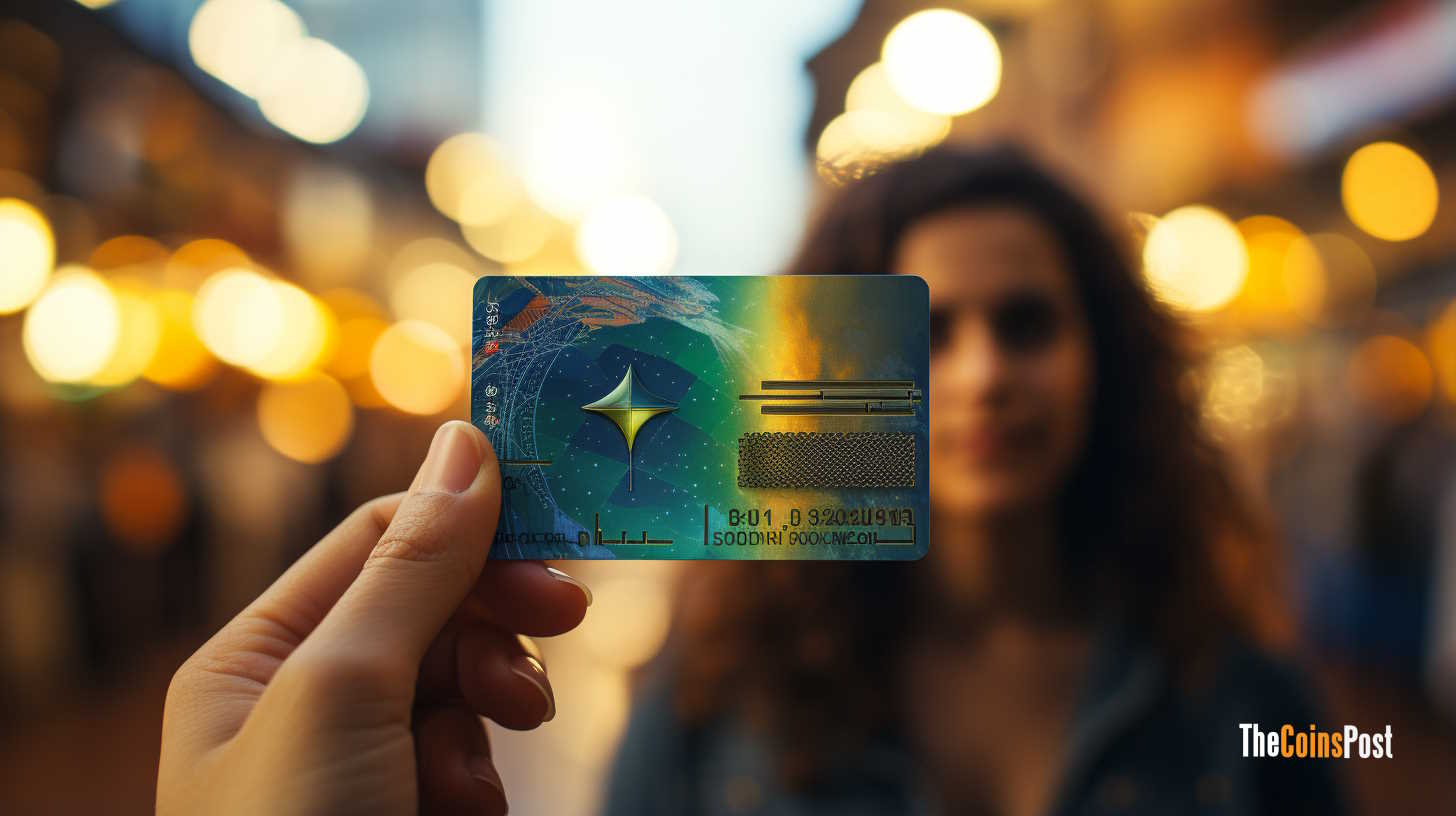
In a significant stride toward modernization, Brazil is rolling out a novel national identity card system, fortified by the integration of a blockchain network. This innovative approach is set to bolster the security of data sharing between the Federal Revenue Service and civil identification authorities.
The cornerstone of this system is the shared registry known as b-Cadastros, designed to underpin the operations of the revenue service. This comprehensive platform facilitates searches, issuance, and modifications of the new ID cards and tax registration numbers. Notably, the platform’s development was orchestrated by Serpro, Brazil’s state-owned IT services corporation.
Serpro’s President, Alexandre Amorim, emphasized the pivotal role of the b-Cadastros blockchain platform in fortifying the National Identity Card project. “The use of the b-Cadastros blockchain platform is a major differentiator for the security and reliability of the National Identity Card project,” he stated.
The National Civil Identity Card (ICN) represents an upgraded iteration of Brazil’s traditional paper-based ID cards, and the nationwide issuance commenced in July 2022. The overarching goal of this project is to centralize the nation’s civil identification system and harness the ICN database to authenticate individuals accessing online public services.
The modern plastic card boasts an innovative feature: it empowers users to generate a single digital version of their identity document. This advancement enhances security, as it allows for validation through a printed QR code. In adopting blockchain technology for the ID cards, the Brazilian government anticipates streamlining processes and curbing fraud and illegal activities. Presently, individuals can request identification cards in all of Brazil’s 27 states, which presents challenges in terms of data integrity and security.
Serpro’s Amorim elaborated on the significance of blockchain technology in safeguarding personal data and thwarting fraudulent activities, thus delivering a more secure digital experience for Brazilian citizens.
The states of Rio de Janeiro, Goiás, and Paraná are set to pioneer the blockchain-based version of the national revenue service’s shared registry for the issuance of the new ID cards this week. The remaining states are poised to follow suit over the next six weeks, marking a significant step forward in enhancing the security and efficiency of Brazil’s identity verification and taxation systems.
Source: Forbes
-

 Altcoins5 years ago
Altcoins5 years agoProject Review: Pi Network, a New Scam Project in Town
-

 Bitcoin4 years ago
Bitcoin4 years agoBitcoin Worth $1.2M Seized From Arrested Indian Hacker
-

 Altcoins6 years ago
Altcoins6 years agoReview: Play Arcade Games Inside ARK Wallet And Win Some Free Cryptocurrency
-

 Blockchain6 years ago
Blockchain6 years agoA Full Review: Utopia A New Decentralized P2P Blockchain
-

 Bitcoin6 years ago
Bitcoin6 years agoAnother Exit Scam: NovaChain Shuts Down
-

 Exchanges6 years ago
Exchanges6 years agoCrex24 Will Require KYC Verification
-

 Bitcoin6 years ago
Bitcoin6 years agoJohn McAfee Has Gone Missing
-
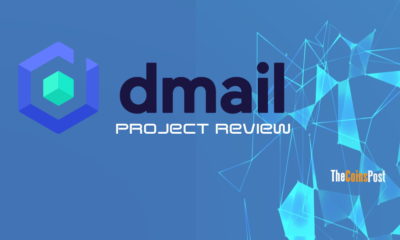
 Blockchain6 years ago
Blockchain6 years agoProject Review: Dmail Decentralized Blockchain Email


